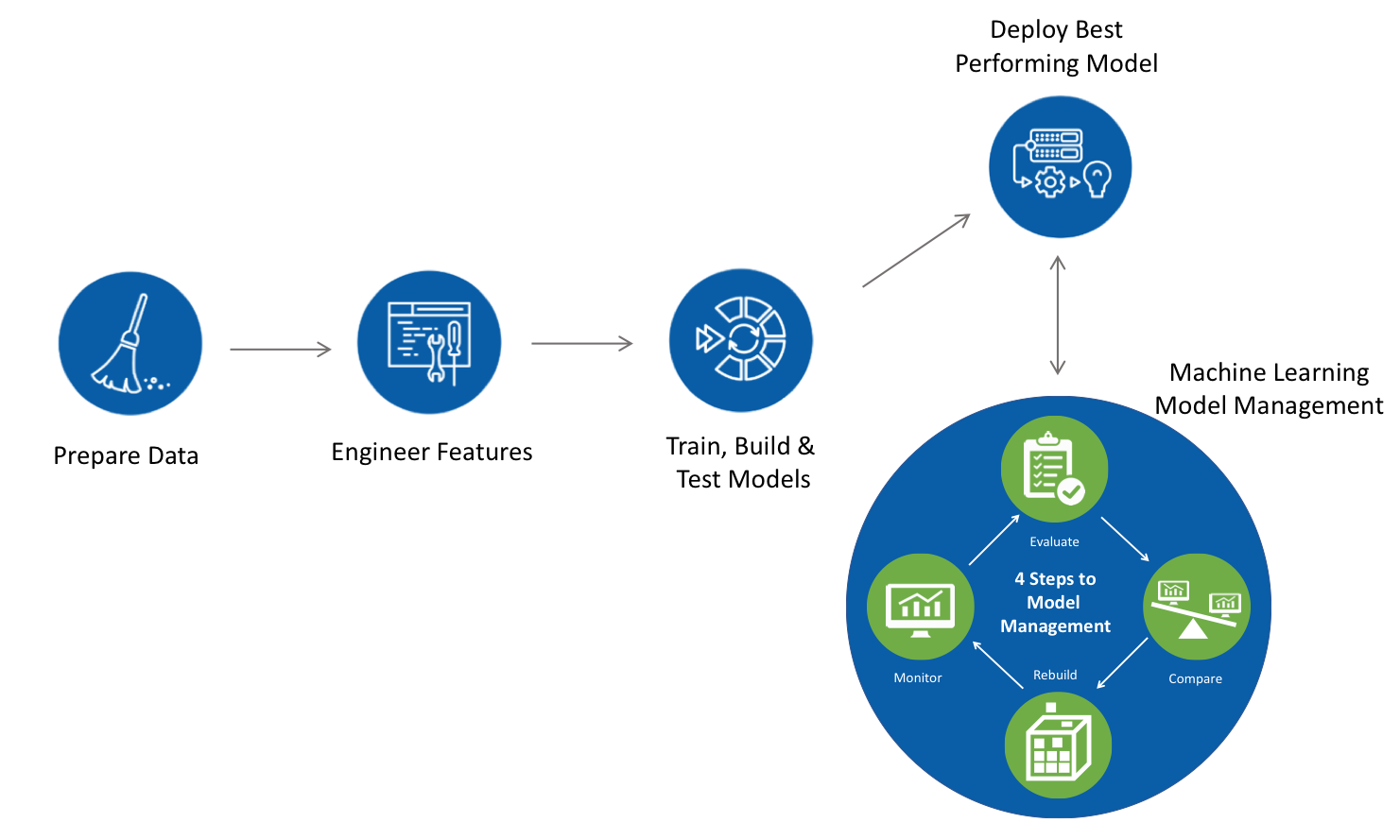 Putting models at the core of business process is the underlying principle for success for data science projects. One of the most talked about components in the Data Science Lifecycle is operationalizing models and as businesses get more model-driven, there’s a greater need for efficient model deployment.
Putting models at the core of business process is the underlying principle for success for data science projects. One of the most talked about components in the Data Science Lifecycle is operationalizing models and as businesses get more model-driven, there’s a greater need for efficient model deployment.
Data Science Lifecycle Starts With

- Preparing data
- Engineer features
- Training, building and testing models
- Deploying the best performing model
A common refrain among data science teams is the lack of model management and the need to build new capabilities that can help in operationalising models. Building more models means utilsing more data and these models can result in driving improved user experience and growth. So, why is operationalising models crucial to success. Pivotal’s Senior Data Scientist Chris Rawles noted in a blog that data scientists spend much of their time preparing and analysing data, building machine learning models, running experiments, and writing code— which are all crucial to successful data science project. However, the most crucial step in the data science project is model operationalisation.
Model Operationalisation Can Drive Business Value
Model operationalisation is what delivers the maximum value in data science workflows and drives growth and revenue. Which implies that production-ready, high-quality code is a key requirement for any data science workflow, and steps should be taken to harden data flow pipelines, ensure data validation checks and also ensure model validation.
US-headquartered Domino Data Lab posited a model management platform in their whitepaper which can drive significant business value. The paper describes models as a type of algorithm which is a coded set of instructions used to calculate a deterministic answer. Models are essentially algorithms wherein instructions are taken from a set of data and are then used to make predictions, recommendations or any other action. What started with the finance industry has pervaded every sector now.
- Models can lead to a new revenue stream
- Models lead to new products or improved customer experiences
- Models drive operational decisions
Tech Giants Follow A Model-driven Approach

Case in point is Netflix that built a substantial revenue stream from its recommendation model and has changed user experience and drives more than 80% of content consumption. transforming the user experience. An older report valued Netflix’s recommendation model at $1 billion per year. Similarly, for e-commerce giant Amazon, machine learning had always been at the heart of operations, from demand forecasting to product recommendations and fraud detection. Madhusudan Shekar, Head of Digital Innovation at Amazon Internet Services Pvt. Ltd explained how ML had always a core strength of AWS. Like other technology majors, AI was a natural progression with Amazon leveraging machine learning technologies to power demand forecasting, product search rankings, warehouse fulfillment centres, inventory forecasting and fraud protection among other use cases.
Shekar explained that Amazon has been implementing machine learning at scale for the last two decades starting from the very early recommender system that was built to recommend books for customers to buy on Amazon portal. “Since then, every aspect of what we do is customer focused, for example, when we work in the warehouses, we make sure the order reaches to you in two days. Practically every aspect is ML-powered, for example, we use computer vision technology to recognise objects,” he shared.
Last Word
Not just that, new-age data-driven companies, also dubbed as the early movers gained a substantial competitive advantage from building and operationalising models at scale. What’s required here is that models Given the increased significance of models, what’s required here is to follow a framework – promote to production for data science teams, the paper from Domino Data Labs suggests. Given how data science is different from software development, data science teams require a new approach to model management to derive full potential from it and also maximise it to meet the business demands.





















